Widowland
by C.J. Carey
C.J. Carey uses two of the greatest what-ifs in modern British history as the basis for the captivating and exploratory alternate history Widowland: what if Great Britain had surrendered to Nazi Germany during World War II, and what if Edward VIII and Wallis Simpson had ruled as king and queen of England.
Set in London in 1953, on the cusp of the coronation of Edward and Wallis, Widowland introduces a world under the Alliance, in which Britain is known as the Protectorate; an authoritarian government, headed by the Leader and supported by a vast system of surveillance and informants, values order and duty above all else. The timing is crucial; it's far enough out from the Alliance that life has, for the most part, returned to some semblance of normal, even if that "normal" includes government control largely upheld by the classification of women "that accorded with their heritage, reproductive status, and racial characteristics." At the top of this caste system sit the Gelis, so nicknamed after the Leader's own idolized niece, and at the bottom are Friedas: widows deemed fairly useless to society for their lack of husband and failure to reproduce on behalf of the Alliance; they are assigned living quarters in "desolate residential districts" known as Widowlands.
Rose Ransom is a Geli, "not so much beautiful as enigmatic, a perfect oval framed by neat dark blond hair and grave eyes of indeterminate blue," who enjoys a slightly more elite status because of her "friendship" with the assistant culture minister, Martin Kreuz. Their relationship--an open secret despite Martin's wife and children back in Berlin and the Alliance's disdain for extramarital affairs--is what lands Rose a new office job with the Ministry. She is assigned to edit literature to be more reflective of the Leader's values, to create a narrative aligned with Alliance rules of order. "Our Protector believes that books are every bit as dangerous as bombs. Words are weapons, aren't they?" Martin asks Rose. "I mean that books, like people, need discipline. Not only the discipline of grammar and sentences but the hard discipline of meaning."
Carey (a pen name for historical fiction author Jane Thynne) uses this premise to great effect, as Rose is drawn into increasingly complicated plots of her own while simultaneously trying to unravel and "correct" the plots of popular works of literature. But, as Rose comes to find out, the Alliance's fear of literature is not unfounded; she finds herself changed by the intended meanings of the very works she is charged with reading and editing. "Reading," she discovers, "preserves empathy, and without that, we're not connected anymore. We lose that feeling of stepping into other lives." When she is eventually sent into a Widowland district on an undercover mission to suss out resistance leaders there, her newfound empathy finds her unexpectedly sympathetic to the plight of the Friedas she meets and appalled by the horrid conditions in which they live. When she, like the Friedas, finds herself with nothing left to lose, the lessons of literature guide her to step into her power--as an individual, as a woman, and as a resistance fighter--in ways she could never have imagined.
Widowland is, of course, speculative fiction, but the depth of historical detail within Carey's parallel world is incredible (though understandable, given the depth of Thynne's research in World War II-era novels such as her popular Clara Vine series). Even the idea of editing works of literature comes from a real--if never actually executed--plan of the Nazi Party. This focus on literature combines with the Alliance's very keen interest in controlling women ("This whole nation is obsessed with order. Ordering books, ordering women"), again reminiscent of very real attempts to control women and their bodies through much of modern history. In Rose's story, even her relationship with Martin is "as much a cage as a comfort," not entirely unwelcome but ultimately also without much choice for Rose.
This brilliant combination of real and imagined details pushes Widowland beyond the realm of mere history or conjecture into something greater: an examination of the power of storytelling and imagination, the seeds of resistance and hope in an authoritarian environment, the way words and fear are used to control and manipulate--all of which transcend the imagined 1950s London that Carey has so expertly crafted. She offers reflections that feel as relevant to modern times as to mid-20th-century Britain. Widowland is as thoughtful as it is thought-provoking, a fast-paced work of historical speculation that asks big questions about the past and present across every page. --Kerry McHugh



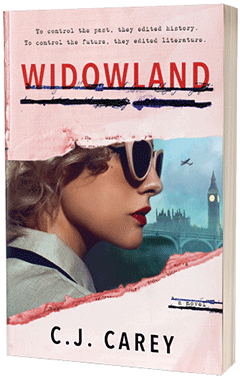
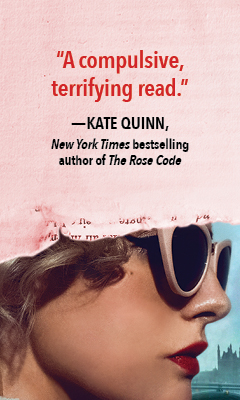
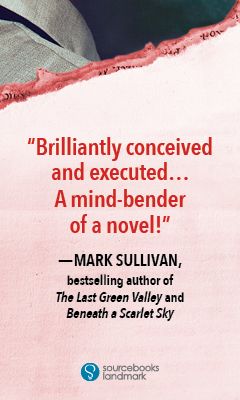
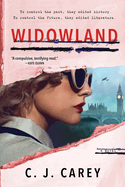

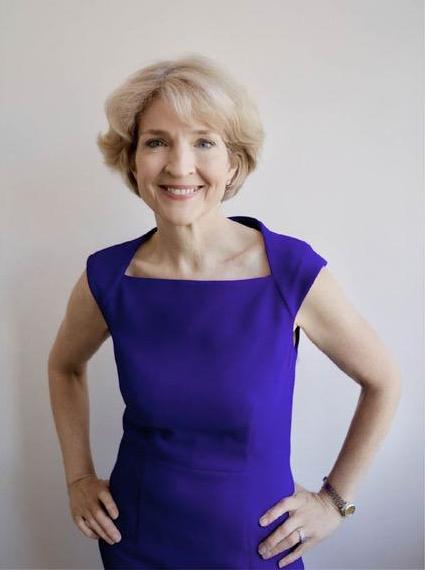 C.J. Carey is the pen name for journalist
C.J. Carey is the pen name for journalist